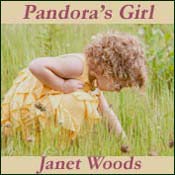My own piece of living history passed away last month - my mother who'd
reached the grand old age of 105.
There
was a sense of her living forever when she passed the century post, and I stopped
expecting her to die. So oddly, the news of her demise came as a bigger shock
than I expected.
Hilda
Harrison was born into a fisherman's family in Seaton Carew, Durham . . . one
of 11 children. She was sent to London when she was fourteen, there to become a
maid in a block of serviced flats. Most of her wage was sent home to help her
parents bring up her younger siblings.
She
met my father, Stanley Targett, in Hyde Park, where he was taking his turn on a
soapbox. He was a widower with two young daughters. My mother produced two more
daughters (of which I’m the fourth) then my brother came along. It was a
marriage of North and South.
Mum
was a hardworking woman, who could turn her hand to everything. As well as
knit, sew garments and hook rugs, she did all the wallpapering single-handed,
and most of the gardening.
During
the 2nd world war mother used to buy a tray of day old chicks from
the market and a couple of baby ducks, which we fed on peelings mixed with bran
and tea-leaves. They were raised in the backyard and fattened up for Christmas,
then sold to the neighbours, who used to come into the garden and take their
pick, feeling their victims’ chests to make sure they got the plumpest one for
their money. They were then prepared for the oven.
My
mother grew vegetables, too. While the hens were laying we always had fresh
eggs when we were children. The powdered ‘muck” was kept for cooking with. We were
never without meat. I learned very early in my life how to kill, pluck and
dress a chicken, or skin a rabbit. Not that I’ve ever used that skill since, or
even wanted to, but I was less squeamish as a child, when necessity was born of
need. And you never know when such skills might be needed again.
Peter,
my younger brother, befriended one of the ducks and turned it into a pet, so he
noticed when it went missing. We were eating it for Sunday dinner at the time
when he asked where it had gone. We told him it had flown away to live on the
pond in a nearby park. From then on I had to take him to the park every so
often so he could visit it. He was always able to see “his” duck amongst the others on the pond. He stopped bothering
about it when he was old enough to realize that Santa Clause was a lie, as
well.
Generally
my mother enjoyed good health, except she was went deaf at the age of about 30.
She was lucky in her later years to be given a good home with my sister Daphne,
and her husband, where she lived happily for the remainder of her life.
Much
of the history I research now for my novels was a part of my mother’s life - an
upbringing in a two bed-roomed terrace with a multitude of siblings, several of
whom died, and a multitude of stories to go with it. She helped to lay out those
her deceased siblings for the required period, and placed pennies in their eyes
to keep them closed.
Then
there was her education at the church school, two world wars, survival of the
Spanish flu pandemic and a world monetary depression in between. My mother had
an upbringing where hard work and discipline were part of it, and expected (as
a child she sold fish door-to-door).
That
work ethic lasted her throughout her life and kept her active.
One of my novels, “The Coal Gatherer,” is based on tales she used to
tell of her childhood in Seaton Carew. It was a hard upbringing. I wrote that
book for her 100th birthday and dedicated it to her.
The
last time I saw my mother was when I visited the UK for her century. She was proud
of receiving a card from the queen, and the cottage was filled with flower
tributes. The whole population of the village where she lived with my sister
and her husband turned out for her party in the village hall, and she enjoyed
all the attention.
Practical
and thrifty to the end, my mother bequeathed her body to further medical
science. Bye mum.

